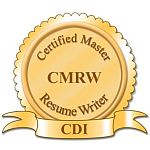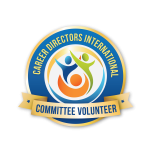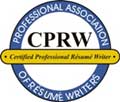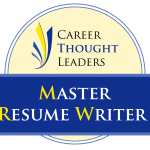I recently worked with a soon-to-graduate, elementary school teacher. She came as a referral from a close friend of hers. When working with students, I’m careful to explain my approach to resume creation and the reality of Job Search 2012. I go on to share, frequently, my techniques will not align with what they have been taught about resumes and job search along the way. I continue, many career centers and career preparation courses are up to speed on the rapidly-changing job search market. Sadly though, many are not.
I crafted a bold presentation taking skills gained through summer jobs, volunteer work, and student teaching assignment and projected those skills into the needs of the potential employer. We used job posting information, her knowledge of the industry, and my resume-writing experience to weave key words throughout the document. We responded to the needs of the potential employer with a solid demonstration of how she had what they needed.
I took it a step further. She wanted to be an elementary school teacher so I incorporated primary green into the format and layout. I used crayons as bullets in her academic experience section. I worked in a quote from her adviser further shoring up her value and potential as a new teacher. I created a strong skill summary immediately responding to company needs in the top third of the first page – a resume within a resume so to speak. I made sure the resume “said” “I am an elementary school teacher” from the first glance to final period. It presented her value boldly and truthfully. It was (is) an attention-grabbing presentation.
She was thrilled with the result, understood the strategy needed to compete in today’s employment environment, and grasped the difference between a career autobiography and a career sales and marketing document. She also knows career autobiographies don’t convey value. They tell what you did and leave the extrapolation of value to the reader. News flash. They won’t extrapolate for or about you.
She told me, part of her curriculum was to submit her resume to her campus career center. I reminded her of the potential for conflicting information. I reminded her career centers are often stretched, administering to thousands of students. They frequently have neither the time, staff, nor funding to have someone committed to monitoring the job search changes a changing economy brings or update the guidance and programs as hiring environments undulate. I told her, I frequently see job search guidance that worked in the ’90s purported as the way to conduct a job search today. NOTHING. I repeat, NOTHING is further from the truth. She submitted her information, eyes wide open to the fact what we had done would most likely conflict with what the center told her.
This week, she forwarded the career center’s response to our bold, modern, unique, branding, sales and marketing document:
Your resume is very colorful and creative, however, it looks more like a print ad or bulletin board… Take out the top section and replace it with your objective statement (one line.. To obtain a position as a _______ teacher…) The things you have in this section are more for your cover letter or the interview conversation, not your resume. In addition, remove the quote from the faculty member…All reference information goes on a separate sheet (3-5 list) or in a reference letter, not on your resume itself. Be consistant with the bullets or crayons…I prefer the bullets…it’s looks more mature and professional. You are also missing a Professional Development section (workshops, presentations and conferences attended with dates…see sample)). If you agree with the suggestions and make changes, don’t forget to upload it to … [campus career website – name withheld].
Fortunately, we were both braced for a negative response. My email back to my client was short and to the point:
They are teaching 1990 job search tactics and trying to pigeon hold you to look like everyone else. Quite frankly, I would not only ignore completely, I would run screaming from this type of guidance. It is as old as dinosaurs and ineffective in a 2012 job search.
In a 2012 job search: Target. Focus. DIFFERENTIATION is key. Cookie-cutter doesn’t cut it.
Next post, I’ll dissect the response line by line, outlining why this guidance is not only wrong and ineffective in today’s search, but also a little scary. Stay tuned.


 Link to this page
Link to this page













Spot on, Dawn!
I did a resume last month for a client who was seeking a position as an school principal (she was a teacher who is graduating in May with her graduate degree and didn’t have any “remarkable” qualifications that would differentiate her, nor any previous experience as a principal). She had just come from a “leadership conference” where they discussed what education administration resumes should look like — and unfortunately, it was a lot of the same things you shared as “dinosaur-like” in your post.
I did the same thing as you did — educating her as to the value of standing out from the “template” approach advocated and positioning her strongly.
Her resume succeeded in landing her an interview for a highly competitive position (one of only 4 candidates selected to interview)… and I just heard back from her last week that she got the job!
Cookie-cutter resumes (especially those predicated on 1990s or even early 2000s tactics) just don’t work! Thank you for being an advocate for your clients!
Bridget –
This type of advice in the midst of a challenging 2012 employment environment puts my stomach in knots. Job search is not impossible, but it definitely becomes more difficult when starting with decades’ old advice. Thank your stopping by and adding your wisdom to the conversation.
[…] « How current is that job search advice? | Beware the dinosaur. […]
Dawn – A perfect example of why patience is a virtue for resume writers! Between this story and all of the times we hear “so-and-so used to work in Human Resources and they said my resume…….” some days you have to take a deep breath and count to 10.
Bravo to you for being proactive and taking the time to “teach” your client about what you do and why you do it. I always learn something new from reading your posts.
Continued success,
Lee
Lee –
Thank you so much for adding to the conversation. I’ve often said a resume writer is a writer, educator, counselor, adviser, psychologist, and cheerleader, all rolled into one. Some days, to do all that, 10 doesn’t cut it. You’ve got to count to 20. 🙂
And thank-you for the heart-warming compliment, “I always learn something new …” Knowing I could help someone, job seeker or colleague, warms the cockles of my soul! Thank you!!
Here is the obvious question to ask any Career Counselor who works for a University: “when was the last time YOU looked for a job?” They obtain a secure gig with a college and then never leave. They are out of touch with today’s job search and encourage plagiarism, even though it’s considered cheating if done in the classroom.
Hi Susan –
You hit the nail on the head. I tell clients to ask anyone offering opinions about the document, custom-created for them and their specific employment desires to ask the “opinioner”:
When was the last time you searched for a job?
When was the last time you searched for a job in my particular industry?
What was the copyright date on the last career book you read?
What was the last HR, recruiter, or career professional blog post you read?
Have you ever done any hiring in your career? Ever?
And, as I point out in a post I wrote a few months ago, how the individual asks for feedback has a lot to do with the insights they receive:
http://write-solution.com/2011/10/06/how-are-you-asking-for-feedback/
That’s not to say good ideas for clarity and information don’t come from feedback. Some of my best ideas stem from client collaboration. But, the information offered to my client was FAR from a “good idea.”
Thanks Susan for adding the important information about vetting questions. Your wisdom is always appreciated here!
Dawn,
So glad you brought up the issue of agencies (campus placement is an agency). If a jobseeker chooses to work with an intermediary, that intermediary becomes the first client, and the jobseeker must act to please them to get their help.
I have found some of the most outdated advice comes from people in our education system. Why? Because they are not placing people, or helping people place themselves in the current world of work (i.e., they are behind the desk, not in the trenches).
The kind of resumé you created belongs in front of the hiring manager. The way to get in front of the hiring manager is to network through an insider. (The Internet has not removed the need to network, just made it easier to find people you know or who might become allies or advocates.)
Jennifer
Hi Jennifer –
You make an excellent point. If a job seeker chooses to work with an intermediary AND that intermediary has an actual opportunity , then by all means, if they want the resume on fuchsia paper with purple unicorns dancing in the borders; do what they say. They’ve got the relationship with the hiring authority and the “in” needed to land an interview.
However if that intermediary is “just” someone with an opinion and that same opinion was shared with the thousands who came before and the thousands that come after, I wouldn’t place much stock in what they had to say or what they could for a search. You’re right though, to play in that sandbox, you’ve got to “play by the rules.” However, the approach to please one cannot become the basis for the entire search.
You hit the nail on the head about people who are not in the trenches giving outdated advice. Things change so quickly, even those of us “in the know” sometimes feel like we’re running to keep up with things. New technology and ideas emerge almost daily.
Networking IS the key to job search success in today’s crazy job search environment. And social media plays a big role. Unfortunately, what I frequently find; graduates are social media savvy when it comes being social, but are surprised when those same tools can be used in a job search, and can impact hiring decisions.
So much educating to do …
Thanks for stopping by and adding such an important point to the conversation. Excellent.
[…] (Read here and here how that could stymie a search before it ever gets started.) […]
The scariest part of your article? The part where the career guidance counselor misspells “consistant.” Wow.
Oh – and half a sentence later –
>> …I prefer the bullets…it’s looks more mature and professional. <<
How can you take career advice seriously when it is coming from someone with such an obvious lack of attention to detail, let alone that the advice is paleolithic?
[…] Dawn Bugni: How current is that job search advice? | Beware the dinosaur. […]